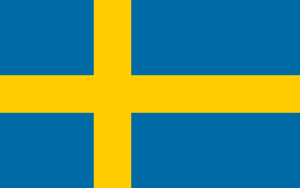Sweden
 Sweden is an EU member state and part of the Schengen Area. At 450,000 km², Sweden is the largest country in Northern Europe and has a total population of around 10.4 million (23/km2). Biggest cities are situated in the central and southern part of the country. The climateThe average weather we would expect over a long period of time (seasons, years, decades). Climate varies from place-to-place across the Earth. Climate is determined by long-term (over at least... More of Sweden is in general mild for its northerly latitude due to significant maritime influence. The general climateThe average weather we would expect over a long period of time (seasons, years, decades). Climate varies from place-to-place across the Earth. Climate is determined by long-term (over at least... More varies significantly from the south and north due to the vast latitudinal differences. The North of Sweden consists of mostly forests and includes a portion of the Scandinavian mountains.
Sweden is an EU member state and part of the Schengen Area. At 450,000 km², Sweden is the largest country in Northern Europe and has a total population of around 10.4 million (23/km2). Biggest cities are situated in the central and southern part of the country. The climateThe average weather we would expect over a long period of time (seasons, years, decades). Climate varies from place-to-place across the Earth. Climate is determined by long-term (over at least... More of Sweden is in general mild for its northerly latitude due to significant maritime influence. The general climateThe average weather we would expect over a long period of time (seasons, years, decades). Climate varies from place-to-place across the Earth. Climate is determined by long-term (over at least... More varies significantly from the south and north due to the vast latitudinal differences. The North of Sweden consists of mostly forests and includes a portion of the Scandinavian mountains.
The following information aims at providing an overview of the most common permit types relevant for scientists travelling to and working in Sweden.
National rules and regulations are given for the following categories:
- Cross border travel (persons, equipment, samples, chemicals),
- Access to specific areas,
- Permits to conduct fieldwork and collect samples,
- Field instrumentation,
- Safety equipment and
- Regional/local permits.
Additional information sources relevant for conducting science in Sweden are also listed.
Disclaimer: INTERACT takes no legal responsibility for the information presented here. These pages only address the most common permit types. Certain studies may require specialist permits not covered here. New regulations may also come into force, permit conditions may change and links may become outdated or no longer work. If you encounter broken links, significant permit updates or have suggestions for additional permit types we can include, please contact us at https://eu-interact.org/contact/.
